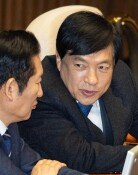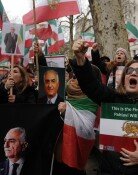[Editorial] Personal Data of Gov`t Officials
[Editorial] Personal Data of Gov`t Officials
Posted July. 20, 2009 03:16,
A controversy has erupted after prosecutors began an investigation on how main opposition Democratic Party lawmaker Park Jie-won obtained the personal information of former Prosecutor-General nominee Chun Sung-gwan, which was released at Chuns confirmation hearings at the National Assembly. Park said, Blocking the legislative activities of a lawmaker cannot happen in a democracy. In response, a prosecutor said, Apart from the hearings, we are checking a report that personal information managed by government agencies was illegally released. If it was, this is a clearly illegal activity that requires strict punishment.
Park exposed Chuns overseas golf trip with a sponsor and the shopping list of Chuns wife at duty-free shops, information that played a critical role in forcing Chun to drop out of the running for the countrys top prosecutor post. If the data was used to confirm the morality of a public figure like Chun, it is hard to say it should not have been disclosed. Unlike the general public, a public figure must disclose his or her personal information and this is allowed under law. Prosecutors also made a mistake in failing to submit Chuns tax-exempt purchase document as requested by Park, saying the Korea Customs Office was in charge of the assignment.
Disclosing personal information of a public figure can be problematic if not acquired or legally released through the right processes and procedures. It is wrong to believe that if the purpose is right, any means or method is justified, like stealing a candle to read the Bible. In this regard, probing how Chuns personal information was released is necessary to prevent the indiscriminate release of personal information by public servants and prevent the lobbying of politicians.
Park said, When I asked for the document on tax-free purchases to the Korea Customs Service, I got a false document. Since I got the list from duty-free shops, I was able to hold (Chun) accountable. Yet Park did not disclose how he acquired the information. The customs office said, The person who gets access to duty-free shop information and the time are supposed to be marked on the document, but the National Tax Service failed to find this. If customs authorities cannot find how personal information was leaked like this, the personal information security system clearly has a weakness.
The probe that began as soon as Chun withdrew his candidacy could raise the suspicion that prosecutors sought to retaliate for the disgraceful exit of one of their own. If the investigation was necessary, the Board of Audit and Inspection or police might have conducted it. This issue also must be considered from different perspectives protection of a government officials privacy, testing the morality of a public figure, and upholding a lawmakers right to conduct legislative activities.



![“잠만 자면 입이 바싹바싹”…잠들기 전에 이것 체크해야 [알쓸톡]](https://dimg.donga.com/c/138/175/90/1/wps/NEWS/IMAGE/2026/02/23/133404749.3.jpg)



